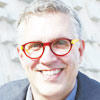Campus death: Could it have been averted?

The recent death of Amna Bawazeer, a graduate student at King Saud University in Riyadh, after she suffered a massive heart attack on campus on Feb. 5, has led to calls for a full investigation and the implementation of protocols to be used in emergencies.
Two versions of what happened are circulating. The first one says that university officials panicked and waited for too long before they called an ambulance. They add that once the male paramedics finally arrived, they were allegedly not allowed quick access to the female section of the university to help her because university officials said there were uncovered women inside. The second version emerged when the rector of the university Badran Al-Omar denied this in an interview with The Associated Press, claiming that there was no hesitation in letting the paramedics in. He insisted that the university did all it could to help the student.
“They called the ambulance at 12:35 p.m. and the ambulance staff were there by 12:45 p.m. and entered immediately. There was no barring them at all. They entered from a side door,” Omar told The AP. That does indeed sound swift, but at what time did Amna have her heart attack? That is a crucial piece of information.
This brings back the bad memories of the 2002 fire at a Makkah girls’ school that saw 15 girls die and more than 50 injured after the male firefighters were barred from entering the school because not all of the girls had their abayas on.
Islam is a practical religion that has exceptions for many of its rules. My father used to tell me that it was a practical religion that allowed travelers to break their fast during Ramadan. In emergency cases like these, the authorities must remember this practical and merciful aspect of Islam and allow the male helpers in at once to help females.
If, for instance, university officials and the religious police are not going to allow male paramedics and firemen into all-female institutions then they should train female paramedics and firefighters. All universities that have female sections should have female doctors on call during school hours in order to provide medical assistance in case of emergencies. Why female professors did not try to move Amna to a hospital themselves is a question that should be asked of them. Many Saudis have asked these same questions in social media, suggesting that medical clinics be set up in all colleges, while others suggested that women be included in the paramedic staff of emergency services so that they could be used in certain situations. I hope the Ministry of Health will thoroughly investigate this sad case and institute mandatory measures that all female colleges will have to follow in medical emergencies. Incidents such as this one are outrageous and give Saudi Arabia and Islam a bad name in the international arena.
A good friend of mine pointed out a similar case in Washington, D.C., where a man last week was having a heart attack in the parking lot of a shopping mall across the street from a firehouse. His relatives ran over to plead for help from the firemen, but they refused to help, insisting that they could only help if they called the 911 and reported the emergency. The man died because of the heart attack.
The mayor of Washington, Vincent Gray, said this was an outrage and that a full investigation would hold those responsible accountable. He said the firemen who failed to help the man having a heart attack failed to show “common decency.”
Here in Saudi Arabia we need a culture of accountability, enforcement of laws and more training in how to deal with emergencies. University staff and students should be trained to deal with emergencies. When I went to college in the United States in the 1980s, we had monthly fire drills in the middle of the night where we had to leave our dormitories and stand outside in the cold until the all-clear signal was given to return inside. Let us learn from such tragedies so that they do not recur.
• The writer is a Saudi journalist based in Brazil.










































